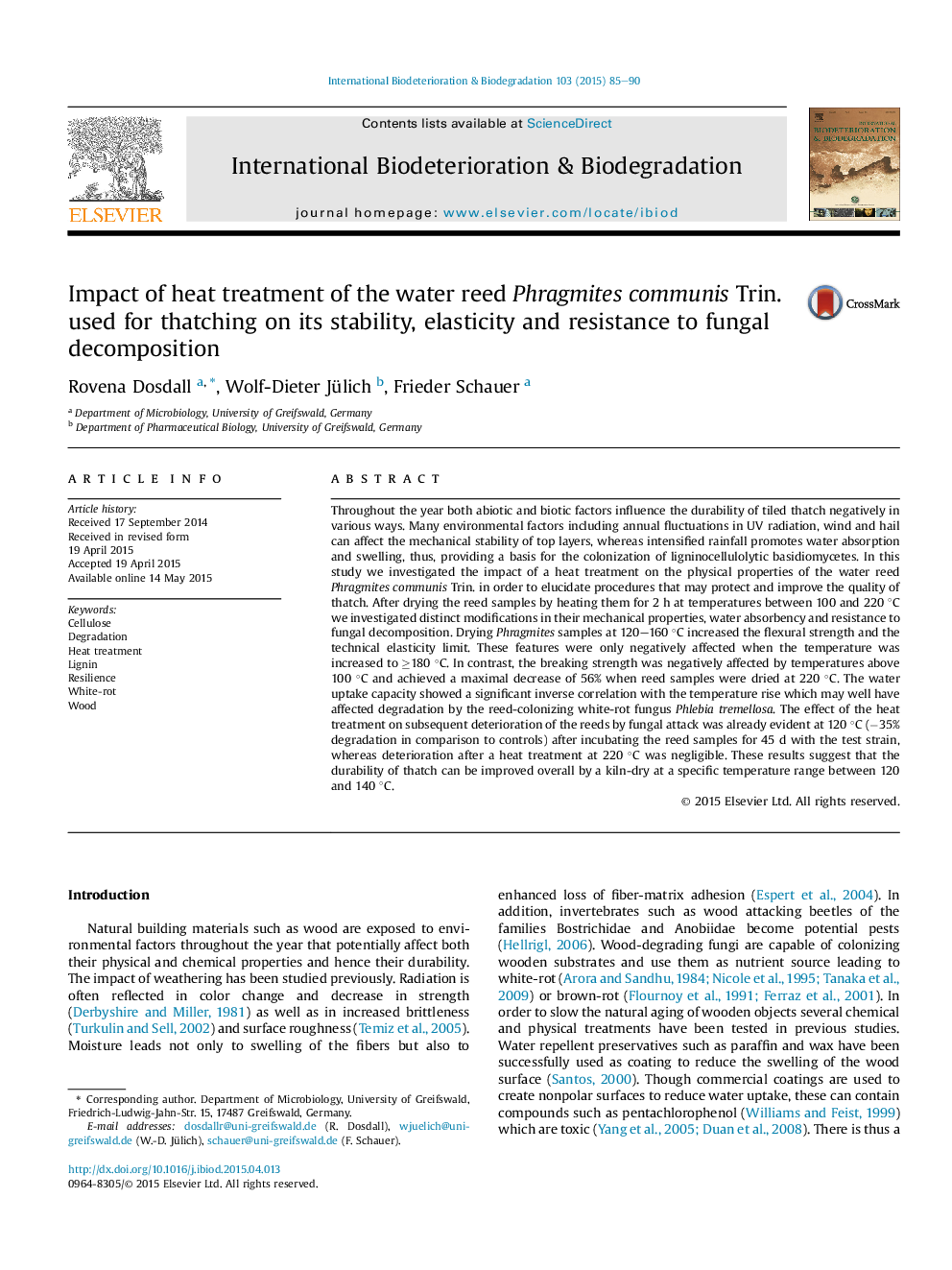| کد مقاله | کد نشریه | سال انتشار | مقاله انگلیسی | نسخه تمام متن |
|---|---|---|---|---|
| 4364407 | 1616314 | 2015 | 6 صفحه PDF | دانلود رایگان |

• A heat treatment improves the durability of reed used as thatch significantly.
• Heat treatment protects reed against the degradation by white-rot fungi.
• The degradation of heat treated reed by Phlebia tremellosa decreased by max. 95%.
• The water uptake of heat-treated reed decreased considerably with increasing treatment temperature.
• Short term drying of reed between 120 and 160 °C increased its elasticity and flexural strength.
Throughout the year both abiotic and biotic factors influence the durability of tiled thatch negatively in various ways. Many environmental factors including annual fluctuations in UV radiation, wind and hail can affect the mechanical stability of top layers, whereas intensified rainfall promotes water absorption and swelling, thus, providing a basis for the colonization of ligninocellulolytic basidiomycetes. In this study we investigated the impact of a heat treatment on the physical properties of the water reed Phragmites communis Trin. in order to elucidate procedures that may protect and improve the quality of thatch. After drying the reed samples by heating them for 2 h at temperatures between 100 and 220 °C we investigated distinct modifications in their mechanical properties, water absorbency and resistance to fungal decomposition. Drying Phragmites samples at 120–160 °C increased the flexural strength and the technical elasticity limit. These features were only negatively affected when the temperature was increased to ≥180 °C. In contrast, the breaking strength was negatively affected by temperatures above 100 °C and achieved a maximal decrease of 56% when reed samples were dried at 220 °C. The water uptake capacity showed a significant inverse correlation with the temperature rise which may well have affected degradation by the reed-colonizing white-rot fungus Phlebia tremellosa. The effect of the heat treatment on subsequent deterioration of the reeds by fungal attack was already evident at 120 °C (−35% degradation in comparison to controls) after incubating the reed samples for 45 d with the test strain, whereas deterioration after a heat treatment at 220 °C was negligible. These results suggest that the durability of thatch can be improved overall by a kiln-dry at a specific temperature range between 120 and 140 °C.
Journal: International Biodeterioration & Biodegradation - Volume 103, September 2015, Pages 85–90